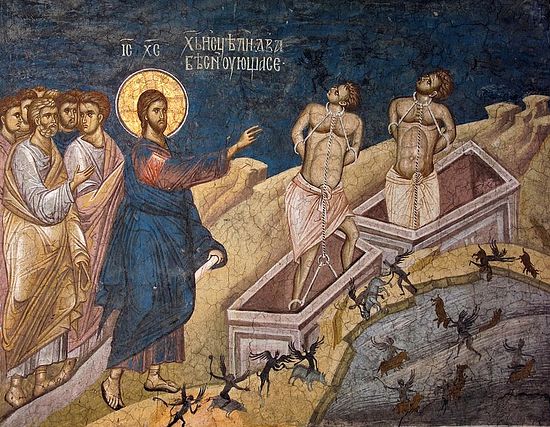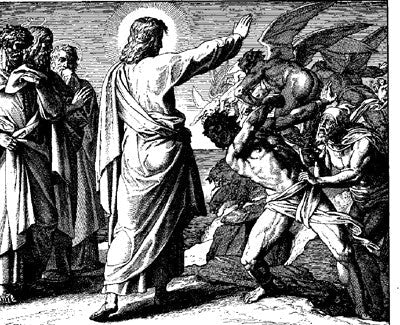Sermons & Homilies

Today, in the Gospel, we heard of a case of demonic possession. Most of the world does not have to bear such a cross; even so, we all have to bear something difficult. We have all been born into and formed within this fallen world. Now, we all find ourselves here, in this church, waiting upon the mercy of God, seeking to draw closer to Him in our hearts, awaiting Holy Communion which knits us together by grace, transforming us all together more and more into the Body of Christ. It seems that most of the world has gone mad; what is called normal by it is called demonic possession by us.



In today’s Gospel we read about two of the miracles of our Lord Jesus Christ, worked while He was in Capernaum, a populated city on the banks of the Sea of Galilee where our Savior often stayed and dwelt for periods of time. Capernaum was situated at the junction of important trade routes. Since our Lord spent a significant amount of time there preaching and working miracles, we can assume that the word about His preaching and deeds went out from Capernaum in various directions. Perhaps the two blind men in this Gospel heard from others about the healing power of the God-Man. Imagine the struggle they must have gone through, however, to get to Christ. Not having the privilege of physical sight, they must have required assistance. To go anywhere for them would require labor and determination. But finally they made contact with Christ – as the Gospel says, they followed Him, something which would have been especially difficult for blind men – and cried out to make themselves known: “Son of David, have mercy on us! With this cry they acknowledged two things; first, the royal lineage of the Savior, as it was prophesied that the Messiah would come forth from the House of David, and second their belief in the power of Christ to heal their infirmity. Furthermore, when questioned regarding their faith in the person of Christ, they called Him Lord. Though they were told not to spread the word of their healing, they were not able to restrain themselves for joy. We can imagine that it would have been hard for them to explain to their close ones that they now had sight, without explaining the circumstances concerning their miraculous healing and giving glory to Christ, their Lord and Healer.
In 1939, the American writer, James Thurber, wrote a short story entitled The Secret Life of Walter Mitty.1 The narrative deals with an aging Walter Mitty on a trip into town with his overbearing wife. Walter is inept at many things; he is an absent-minded driver, he can’t handle simple mechanical tasks, and he forgets things easily. While he goes through a day of ordinary jobs and errands, he escapes into a series of romantic fantasies, each spurred on by some mundane reality.

